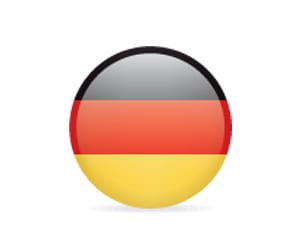Germany prepares for changes to gambling laws

Germany has offered a series of changes to its national gambling laws to make them conform to European Union rules.
According to law firm DLA Piper, the draft ‘Second State Treaty Amending the State Treaty on Gambling’ sets out to address the issues that have been picked out on numerous occasions by the European Court of Justice.
Proposed changes to the law include sports betting concessions being issued on a qualitative basis, which will cover the lifting of a limit of 20 sports betting concessions and issuing preliminary concessions for the 35 operators found to meet the requirements for a concession.
In addition, the state of Hesse will now hand over its competence to issue sports betting concessions to another state in the country.
However, according to DLA Piper, the draft legislation does not include changes regarding enforcement against unlicensed gambling or regulation of online casinos, thus not addressing concerns raised by the German Council of Games of Chance and the country’s advertising guidelines.
A standstill period during the EU notification procedure will run until February next year, with states in the country hoping to ratify the law before the end of 2017. The State Treaty on Gambling will therefore not come into effect until January 2018 at the earliest.
Reflecting on the timetable, DLA Piper said: “The interim measure of getting orders of approval for sports betting will become more relevant until the concession procedure is realigned by the new State Treaty.
“Also, the Federal Administrative Court of Germany ruled in a recent decision that if the state monopoly for sports betting persists an administrative prohibition of sports betting without a German sports betting concession would be unlawful.
“This decision ties in with a recent decision of the European Court of Justice; there the ECJ ruled that a criminal prosecution of a sports betting intermediate is contrary to EU law if the licensing process for private sports betting organisers has been held to not conform with EU law by national courts.”
Related article: German states join forces for online gambling framework
